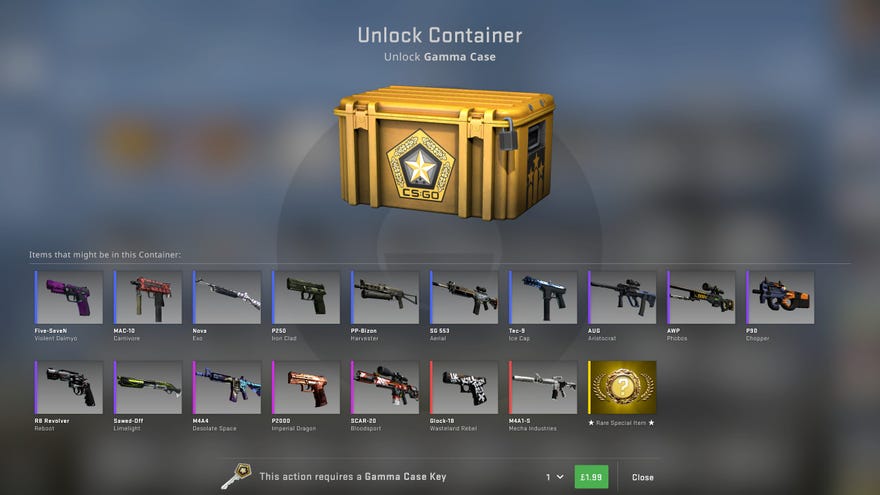UK games industry agrees to restrict access to loot boxes for under-18s
Among 11 principles to mitigate potential harm
Ukie, the organisation which represents the UK games industry, have published 11 new "industry principles" regarding the implementation of loot boxes. These principles come as a response to the UK government, who last year called for greater protection for under-18s and vulnerable people from the potential harmful effects of loot boxes.
The principles have been agreed by representatives from "major international platforms", as well as from international and UK-based publishers and developers, who worked with the Department for Culture, Media and Sport, academics, consumer groups and regulators.
Among the 11 principles are a pledge to make "technological controls" more widely available that restrict anyone under the age of 18 from purchasing a loot box without the consent of a parent or guardian.
The industry will also fund an awareness campaign designed to educate parents about those controls, make clear that a game contains loot boxes before purchase, make probability information available before a loot box is purchased or opened, and commit to a lenient refund policy in instances where a purchase is made without parental consent.
All 11 principles were published on the Ukie site.
"We've been clear the video games industry needs to do more to protect children and adults from the harms associated with loot boxes," said John Whittingdale, Minister for the Creative Industries. "These new principles are a big step forward to make sure players can enjoy video games responsibly and safely. I look forward to seeing games companies put the plans into action and will be watching their progress closely."
Over the past several years, the UK government have investigated loot boxes and whether they should be regulated the same way as gambling. In July 2023, the government essentially said the industry needed to do more to protect under-18s or face greater government regulation.
Other countries have taken a harder line, with Belgium declaring loot boxes a form of gambling in 2017 and banning them in 2018 - albeit with seemingly inconsistent enforcement as of 2022. Earlier this year, the EU voted for more reform in the video game industry, which included greater regulation of loot boxes.

